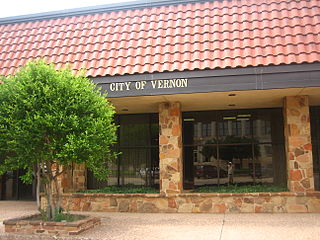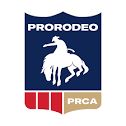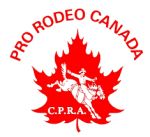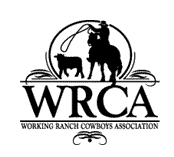
Rodeo is a competitive equestrian sport that arose out of the working practices of cattle herding in Spain and Mexico, expanding throughout the Americas and to other nations. It was originally based on the skills required of the working vaqueros and later, cowboys, in what today is the western United States, western Canada, and northern Mexico. Today, it is a sporting event that involves horses and other livestock, designed to test the skill and speed of the cowboys and cowgirls. American-style professional rodeos generally comprise the following events: tie-down roping, team roping, steer wrestling, breakaway roping, saddle bronc riding, bareback bronc riding, bull riding and barrel racing. The events are divided into two basic categories: the timed events and the roughstock events. Depending on sanctioning organization and region, other events such as steer roping, goat tying, and pole bending may also be a part of some rodeos. The "world's first public cowboy contest" was held on July 4, 1883, in Pecos, Texas, between cattle driver Trav Windham and roper Morg Livingston.

Vernon is a city and the county seat of Wilbarger County, Texas, United States. and as of the 2010 Census had a population of 11,002.

Stamford is a city on the border of Jones and Haskell counties in west-central Texas, United States. The population was 2,907 at the 2020 census. Henry McHarg, president of the Texas Central Railroad, named the site in 1900 for his hometown of Stamford, Connecticut. The city is home to the Texas Cowboy Reunion.

A cowboy is an animal herder who tends cattle on ranches in North America, traditionally on horseback, and often performs a multitude of other ranch-related tasks. Cattle drives ensure the herds health in finding pasture and bring them to market. The historic American cowboy of the late 19th century arose from the vaquero traditions of northern Mexico and became a figure of special significance and legend. A subtype, called a wrangler, specifically tends the horses used to work cattle. In addition to ranch work, some cowboys work for or participate in rodeos. Cowgirls, first defined as such in the late 19th century, had a less well-documented historical role, but in the modern world work at identical tasks and have obtained considerable respect for their achievements. Cattle handlers in many other parts of the world, particularly in South America and stockmen and jackaroos in Australia, perform work similar to the cowboy.

A rodeo clown, bullfighter or rodeo protection athlete, is a rodeo performer who works in bull riding competitions. Originally, the rodeo clown was a single job combining "bullfighting" — the protection of riders thrust from the bull, as well as being an individual who provided comic relief. Today, the job is split into two separate ones: bullfighters who protect the riders from the bull, and entertainers (barrelmen) who provide comic humor. However, in some parts of the world and at some small rodeos, the jobs of bull rider protection and comic remain combined.

The National High School Rodeo Association (NHSRA), based in Denver, Colorado, was incorporated in 1961 to promote interest in rodeo sports among high school students, to provide training, and to establish venues for their performances.
The National Finals Rodeo (NFR) is the premier championship rodeo of the Professional Rodeo Cowboys Association (PRCA). It showcases the talents of the PRCA's top 15 money winners in the season for each event.

The Professional Rodeo Cowboys Association (PRCA) is the largest rodeo organization in the world. It sanctions events in the United States, Canada, and Mexico, with members from said countries, as well as others. Its championship event is the National Finals Rodeo (NFR). The PRCA is headquartered in Colorado Springs, Colorado, United States.

Cowtown Coliseum is a 3,418-seat arena in Fort Worth, Texas, United States, that hosts weekly rodeos. It also occasionally hosts concerts and local team sporting events.
History of rodeo tracks the lineage of modern Western rodeo.

A stock contractor is an individual or business that provides animals for rodeo competition. Stock contractors supply rough stock - bucking horses for saddle bronc and bareback bronc riding and bucking bulls for bull riding, plus steers for steer wrestling and team roping, plus calves for calf roping and breakaway roping events. The use of stock contractors who specialize in providing these animals has produced a more uniform range of bucking stock which is also quieter to handle.
A ranch rodeo is a traditional type of rodeo in which teams of cowboys or cowgirls from different ranches compete against each other in events based on the type of work they do every day.

Wild cow milking is a rodeo event seen at mainstream and ranch rodeos. A team-based competition, the goal is to catch and milk a "wild" cow in as short a time as possible. The competition dates back at least to the early 20th century, with competitions at the Cheyenne Frontier Days rodeo photographed as far back as 1924.
Mary Ellen "Dude" Barton was an American cowgirl. She was born Mary Ellen to Wilburn Barton and Ella Orr Barton. She was the granddaughter of Al Barton, an early cowboy and rancher of the area. She was the last child born of the family, and grew up on the family ranch on the North Pease River east of Flomot, Texas. She had learned how to handle horses and mules while doing farm and ranch work in her youth. Dude loved playing basketball but entered her first rodeo competition at age 15 in 1939 at a local contest in Matador.
Fred Whitfield is an American former professional rodeo cowboy who specialized in tie-down roping. He won eight Professional Rodeo Cowboys Association (PRCA) world championships and three National Finals Rodeo (NFR) aggregate titles. Seven of those titles were tie-down roping world championships and one was the all-around world championship. He is one of a few African-American professional rodeo cowboys and by far the most successful. He was inducted into the ProRodeo Hall of Fame in 2004.
Guy Allen is an American ProRodeo Hall of Fame cowboy and an 18-time steer roping world champion. He competes in rodeos sanctioned by the Professional Rodeo Cowboys Association (PRCA). He won the world title for the steer roping event 18 times when competing at the National Finals Steer Roping (NFSR) and also won the National Finals Rodeo (NFR) Average title five times. He had won the title 11 times in a row when Buster Record broke his streak. Allen is also inducted into eight rodeo halls of fame.

The Canadian Professional Rodeo Association (CPRA) is the governing body of professional rodeo in Canada. Its championship event is the Canadian Finals Rodeo (CFR) held every November.

Wanda Harper Bush was an American professional rodeo cowgirl. She competed in the Girl's Rodeo Association (GRA), now known as the Women's Professional Rodeo Association (WPRA), and won two barrel racing world championships, in 1952 and 1953. She was inducted into the National Cowgirl Museum and Hall of Fame in 1978 and the ProRodeo Hall of Fame in 2017. The August 2017 induction ceremony was ProRodeo's 38th annual event, and marked the first time in the event's history that the class of inductees included barrel racers from the Women's Professional Rodeo Association (WPRA).
Elenor "Sissy" Thurman, is a National Cowgirl Museum and Hall of Fame 1975 inductee. She was also inducted into the Texas Rodeo Cowboy Hall of Fame in 1978.












